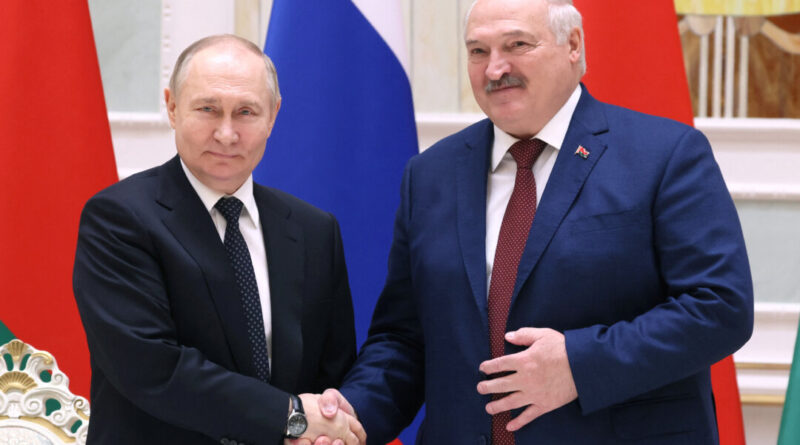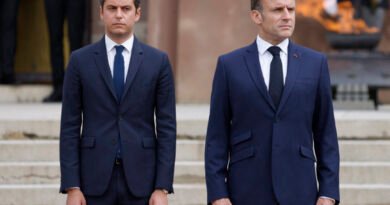Russia and Belarus to finalize agreement on mutual security guarantee.
Russian President Vladimir Putin recently signed an updated version of Russia’s nuclear doctrine that placed Belarus under its protection for the first time.
Russian President Vladimir Putin has arrived in Minsk, the capital of Belarus, to sign a mutual security treaty with Moscow’s closest ally.
Putin said, “I’m sure that the treaty will ensure the security of Russia and Belarus.”
He said it would involve the deployment of Russian tactical nuclear weapons to Belarus in response to any aggression from NATO.
Russia has said its updated doctrine says it could use nuclear weapons “in response to the use of nuclear and other types of weapons of mass destruction” against Russia or its allies.
It also stated nuclear weapons could be used in the event of aggression against Russia and Belarus with conventional weapons if they threaten their sovereignty or territorial integrity.
Kremlin spokesman Dmitry Peskov, according to Russia’s RIA-Novosti news agency, said of the security guarantee: “This is an absolutely reciprocal initiative.
“The very logic of the development of events dictates the need for such a document.”
Russia and Belarus regularly conduct joint military drills, but Moscow has not asked Minsk to send troops to the war in Ukraine.
During the Soviet era, Belarus—which is sandwiched between Russia, Poland, and Ukraine—had a number of SS-25 Sickle missiles with nuclear warheads deployed on its territory.
In 1994, Belarus, along with Ukraine and Kazakhstan, signed the Budapest Memorandum, which removed nuclear weapons from their territory in return for security guarantees from Russia, the United States, and the United Kingdom.
Its president, Alexander Lukashenko, was a senior communist bureaucrat in the Soviet Union.
He was first elected president of Belarus in 1994 and has remained in power for 30 years.
In 2020, he was accused by the West and by his opponent, Sviatlana Tsikhanouskaya, of rigging the presidential election to remain in power.
Tsikhanouskaya, who wanted to move Belarus away from Moscow’s orbit and toward eventual integration with the European Union, later went into self-imposed exile in neighboring Lithuania.
After the election, the United States and the European Union slapped several rounds of sanctions on Lukashenko, other officials, and industries in Belarus.
Interested Spectator of War
Belarus has watched the war in Ukraine as a spectator, supporting Russia but not wanting to get involved.
Tensions rose in June, with the Belarusian defense ministry claiming there was increased Ukrainian drone activity along the two countries’ 674-mile border.
The ministry went on to allege it had information Kyiv was sending troops and equipment to Ukraine’s northwestern Zhytomyr region, which borders Belarusian territory.

Ukrainian servicemen operate a Soviet-made T-72 tank in the Sumy region, near the border with Russia, on Aug. 12, 2024. Roman Pilipey/AFP via Getty Images
Belarus then beefed up its air defenses along its border with Ukraine with the stated aim of protecting “critical infrastructure facilities.”
However, the Ukrainians withdrew troops from the frontline in the Donbas, weakening it considerably, and the Russians have advanced significantly in the past two months.
The Associated Press and Reuters contributed to this report.





